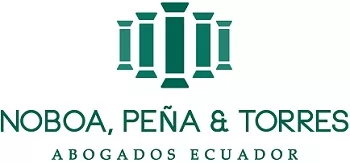In Ecuador, the public body of control and regulation of commercial corporations has the wrong idea that foreign corporations and their branch offices are different legal entities and therefore, the closure of a foreign branch office in Ecuador -as a result of the closure of its main office- involves a long and tedious bureaucratic process of liquidation and cancellation, which is far more than just proving that the corporation does not longer exist abroad.
To open a branch office in Ecuador and start up a business, foreign corporations must "establish residence", this is, to previously request an operation permit before the Superintendence of Companies, Shares and Insurance (hereinafter "SCVS"), which is a regulatory body of commercial corporations, so that such corporations may carry out their businesses in the private field or execute public works with the State.
But, what happens when the main office, for whichever reason, decides to close business? What happens to the branch offices in other countries? And, specifically, what happens to the branch office operating in Ecuador? In a typical scenario, once the decision to close business is made, the main office reports to all its branch offices to also close business. This decision is forwarded to the regulatory body so it shall: (1) take note of such situation, (2) order the registration in the public records that the corporation has expired; and (3) close any tax identification number obtained when the branch office first opened.
Nevertheless, in Ecuador, what should be an agile and simple process, turns to be a problem. Despite the fact that numeral one of Article 406 of the Corporations Law provides that the operation permit granted to a foreign corporation with a branch office in Ecuador may be cancelled "(...) if the main office, for any reason, expires or closes business at its place of origin", in practice, branch offices must follow an administrative process, which leads to the requirement of staying active as a taxpayer during the liquidation process and until the registration of the cancellation of the corporation.
For the regulatory body, it is as if there were two different legal persons, and based on this erroneous criterion they justify carrying out a long administrative process that - despite the fact that such foreign corporation, through its representative, provided to the SCVS the final decision of the administrative body and the corresponding cancellation and termination certificate of its main office- requires the evaluation and approval of these documents through a liquidation and cancellation process, which is designed for national corporations incorporated in Ecuador, process during which a foreign corporation still has legal existence.
Continuing this erroneous reasoning, corporations that have more than one branch office in different countries, would even have multiple personalities or legal existence; and, during the period between the cancellation request and the effective cancelation date of the operation permit in each country, the ownership or responsibility over the assets and liabilities would fall on a non-existing legal person, which makes no sense at all.
If we make a comparison between these corporations and any person, both would justify the termination of their existence or their death with the corresponding death certificate or cancellation certificate. Thus, in the case of a national or foreign natural person that has passed away abroad, and their heirs or legatees have a stake in Ecuador, they must annotate such event in the public records of the country, but these documents are not subject to an extensive evaluation process; therefore, for corporations, it should be the same.
It must be clear that when a foreign corporation decides to establish residence in Ecuador, it does not entail a legal incorporation in our country. Although the SCVS has the legal capacity to grant a permit to operate in the country, such permit does not imply that the branch office has acquired a legal capacity different from the one it already has pursuant to the laws of incorporation of its country of origin.
It makes no sense that the decisions taken by the main offices, such as the decision to cease operations, are taken on immediately in such country, while the execution of such decisions in Ecuador are subject to the prior approval of the SCVS, because this would mean that the main office has not lost its legal existence.
The content of this article is intended to provide a general guide to the subject matter. Specialist advice should be sought about your specific circumstances.

